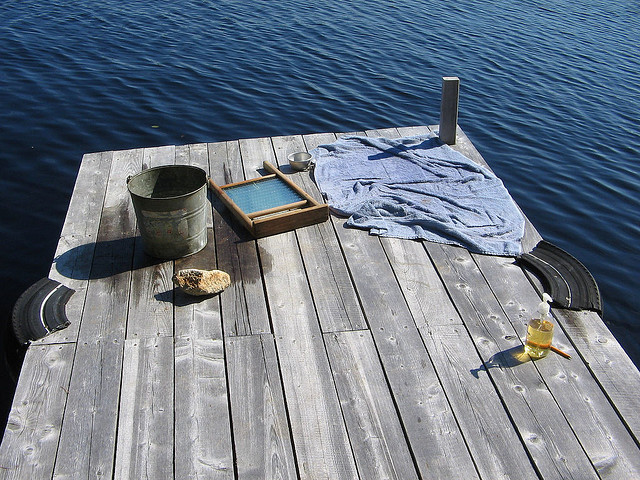
Camping is supposed to be a green, nature-loving activity. We get outdoors because we like to spend some time away from the computer, the air-conditioning and go out and take in as much of the sun and fresh air as possible. To preserve that environment, here are a few tips on reducing your environmental footprint outdoors.
There are two ways of doing so: the state in which you leave your home and what you actually do at your campsite.
At home, remember to turn off and unplug all your electronics that sip energy when just plugged in: phone chargers, computer chargers, monitors, microwaves, etc. Anything emitting a light (such as the time on most microwaves and some coffee makers) takes in a small amount of energy that can add up to a lot over time.
Turn off your thermostat or air-conditioning while you’re away. If your household items would be damaged if the heat or air is completely turned off, then at least adjust each device to the lowest necessary setting.
When leaving home, carpool. This seems obvious, but campers tend to overpack, not leaving enough space for other campers. Take a bigger car or reduce your packs into a consolidated pack instead of taking four individual bags. Compile and take the food in a reusable bag, not plastic store bag. Also remember that you can likely buy supplies on location.
Bring along bikes, scooters or roller blades to get around your campground, to the beach or to get supplies from your store instead of your car.
Entertain yourself with activities that require minimum power. Fish in a paddle boat, or along the side of the bank. Read a book, go on a hike or on a scavenger hunt.
Bring reusable utensils from home instead of plastic cutlery and paper plates. Or do as the French do, and wash your plastic cutlery for another use. Lessen the amount of water you use by bringing along a big bowl or pot and filled 3/4 of the way with water. Use that water basin to wash your utensils and plates all weekend and use fresh water only to rinse.
Use the paper waste from your cracker or sausage wrapping, etc. as a fire starter. Alternatively, recycle them at the nearest paper recycling bin.
Compost food waste. If you don’t have a compost heap nearby, inquire about dumping food waste at a local urban garden or park authority.
Keep your garbage in a small bag, paper lunch bag size or slightly larger. It’ll be a constant reminder to yourself about how much you’re using and put into perspective how much you throw away permanently.
Use biodegradable soaps and shampoos. Especially if just washing your hands from a water spout near your campsite or at a nearby river. This way the environment isn’t left with synthetic chemicals in the ground (especially those from scented soaps).
Just keep in mind that you’re out there to enjoy nature and it’s up to you to preserve it. Most everything you bring liquids in is either reusable or recyclable (plastic, aluminum, paper). All it takes is a little extra effort and saving the money on one-use supplies and gas electricity at home will make up for the added cost of biodegradable soaps.
Photo: Munir Squires

 Your Privacy Choices
Your Privacy Choices
 The
The